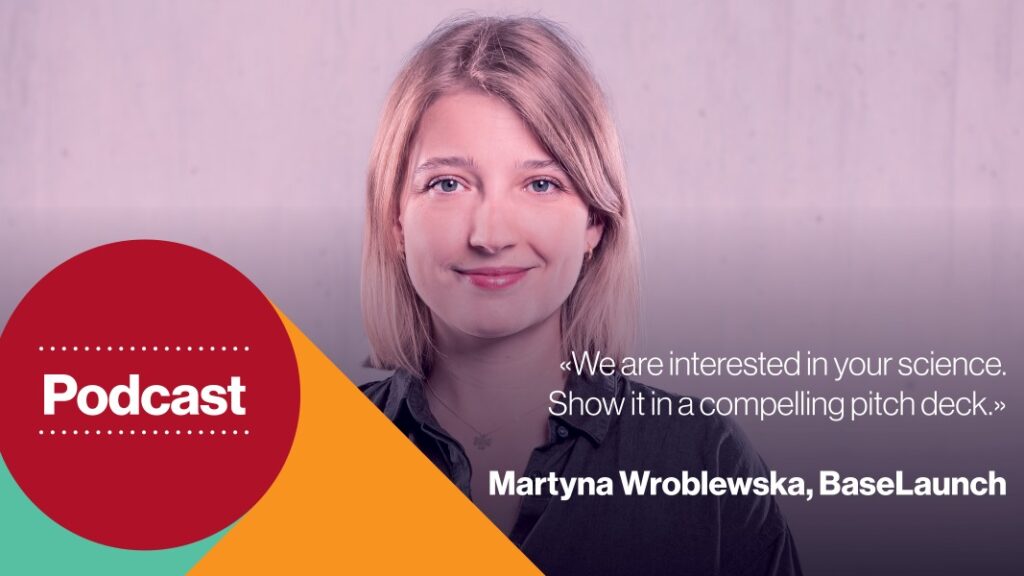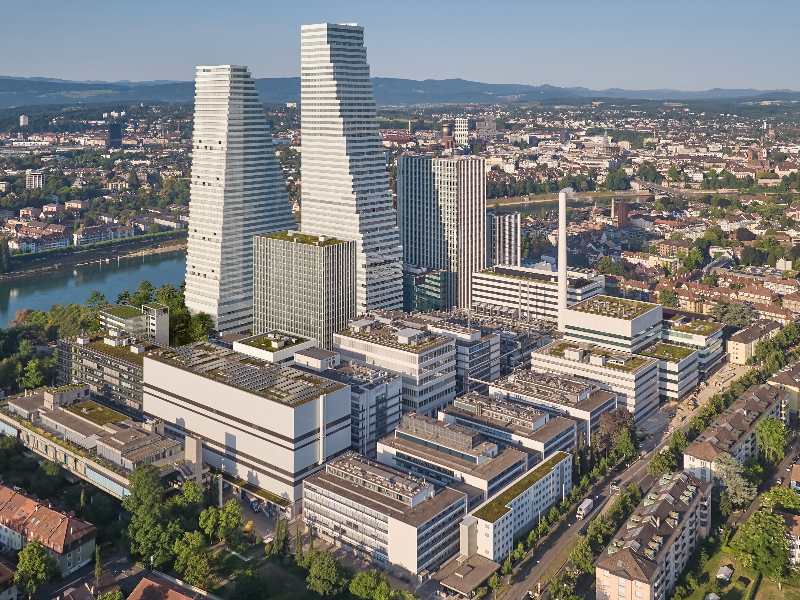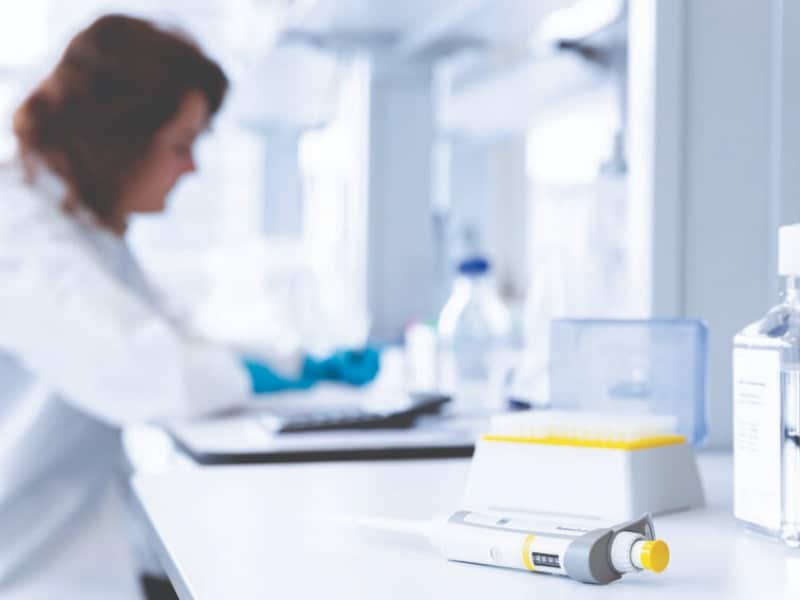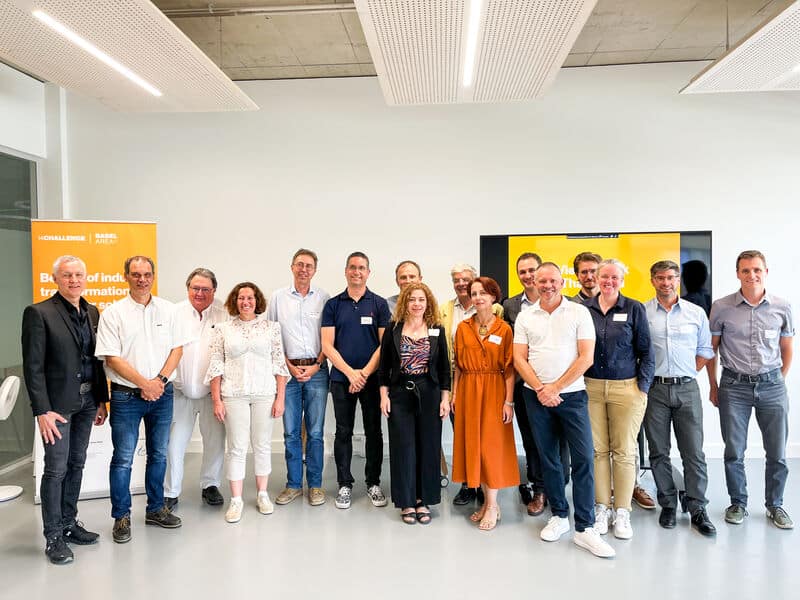
| News
Healthcare innovations gain traction with the DayOne Accelerator
05.03.2019
Three innovative healthcare startups participate in the first round of the DayOne Accelerator. Faraz Oloumi from Aurteen, Chang Yun from Noul and Christian Vogler and Leo Gschwind from Advancience are examples of how far conviction can get you.

Chang Yun (Noul), Faraz Oloumi (Aurteen), Leo Gschwind and Christian Vogler (Advancience) (Img: Pino Covino)
BaselArea.swiss: Faraz, why did you establish Aurteen in the first place?
Faraz: During my studies in electrical and computer engineering, I worked on retinal-image analysis and fell in love with the subject. I completed my Masters, then my PhD and declined a safe job to pursue the topic and founded Aurteen. I am 100 percent convinced of the novelty and necessity of computer-aided assessment of the retina, because the vessels at the back of the eye tell the story of your overall health from retinal disease to metabolical and cardiovascular disorders.
Christian, was there a starting point for you as well?
Christian: I studied psychology and genetics. In order to use genetics as a tool to research the human mind, my co-founders and I started to pursue psychometrics. The typical toolkit for psychometric testing originates in the 1940s to 1970s. We took psychometric tests to the 21st century, added gamification, made it entertaining and scalable and thus are able to process large numbers of study participants. We want to drive psychology forward. We are convinced that you can use our tools for a broad range of different purposes: It is a diagnostic tool for testing attention disorders or memory impairments as well as an HR tool to make teams work better together.
Chang, you joined Noul one year ago. What was the reason?
Chang: One of the co-founders is a biomedical engineer. Right after he had earned his PhD in the United States he spent 1,5 years in Malawi for his voluntary social service. He witnessed many children die from malaria and was surprised to see health workers still rely on tests that were inaccurate and inefficient. He founded Noul in 2015 to develop a portable device that uses image analysis and artificial intelligence to diagnose diseases from blood samples. As his close friend I have been interested in this project from the beginning and joined one year ago being ascertain that my career in the United Nations would be conducive for success of the project. I have a background in business management and public administration. As the Director of Global Business Development at Noul I now set up the European office.
What was the hardest part in establishing the company?
Chang: For us, it was the science. We had trials and errors. While the clinical trials in the laboratory worked well, the results in the field were often unexpected. Sometimes it was hard to get enough samples with high quality. To overcome those hurdles, we cooperate with the Swiss Tropical and Public Health Institute in Basel. In addition, to approve a new technology like ours also requires new criteria. That takes a lot of time and sufficient convincing data from our side.
Christian: As a scientist, you don’t become an entrepreneur overnight. I had to learn that the scientific results are not the only thing that counts. Instead, I also need to sell my results and think about specific value propositions. I’m familiar with psychology, genetics and bioinformatics – and now I have to come up with business cases on top of that. In the corporate world, we encounter a new problem every day. You always need a plan B, C and D. It is a tremendous amount of work, but a lot of fun, too.
Faraz: Not being able to financially support yourself is not easy. I haven’t paid myself a dime in the past years. The hardest part for me though was convincing people that my ideas and vision are not crazy. I had to fight a lot of adversity. But I don’t regret it at all. Then there are other challenges like making myself be a CEO rather than just being a CTO, which means that you can no longer be a perfectionist. That is a challenge I enjoy.
What do you hope to achieve during the next couple of months in the DayOne Accelerator?
Faraz: While Canada is well suited to the telemedical approach and my collaborators and potential customers are there, we don’t have a strong business case in Canada in terms of pure numbers. Plus, the nearest market, which is the US, is very fragmented and complicated to enter. To participate in the DayOne Accelerator is the perfect opportunity for us to look at and validate the European market. Further, we want to validate our list of value propositions and find investors.
Chang: Our Swiss partners encouraged us to apply for this program and luckily we were selected to take part. I believe Noul has worked very hard for developing unprecedented diagnostic solutions for last three years. Now the time is right to look back at what we have achieved so far and use the input we get here to make our business model more concrete. We want to get to know the people that can further help us to reach that goal and explore the opportunities.
Leo: We want to learn how to set up and run the business. And we want to get ready to pitch to potential investors and look for seed money.
The acceleration program started in January. What is your experience so far?
Faraz: It all came as a pleasant surprise. The ecosystem in terms of support for startups is completely different from what I am used to. I am talking to senior figures from the pharma and clinical side and the overall support happens to be on a high level. The DayOne team cares for me and my business to succeed. I am convinced that we can gain more traction here. Based on my experience so far, I am exploring the idea of establishing here in Basel. It really is a blessing for our team.
Chang: I am impressed. The meetings we had so far are extremely beneficial and helpful. Strategically, it pays off to be in Basel and be close to our partner, the Swiss TPH and in traveling distance to our stakeholders in Geneva. So far, the accelerator proves to be very effective.
Leo: The input is enormous. We benefit tremendously in learning how to structure the business. It’s brilliant to learn the trade from experts and get first-hand insights. And the funding relieves the hardest pain.
What was the biggest cultural shock when coming to Basel?
Chang: In my culture, people are not as direct while here people voice their opinions more directly. I enjoy that diversity and wish we had more of that in our team in South Korea. Also, I rarely see traffic jams here.
Faraz: It is shocking how everyone seems to understand English.
Advancience is a startup from Basel with a focus on digital tools for psychology. Christian Vogler, Leo Gschwind, Andy Aeberhard and Marko Obradovic co-founded Advancience in 2019 to build upon a joint research project from the founders. The company uses data that is gathered while playing computer games to measure cognitive functions, which for example can help to diagnose psychiatric disorders.
Aurteen is based in Alberta, Canada and develops software that improves the detection, monitoring and treatment of retinopathy with preterm infants, which is the leading cause of preventable childhood blindness worldwide. Founder and director Faraz Oloumi is an expert in retinal image analysis. Aurteen hopes to collaborate with clinical and technical experts in the Basel area to bring its software closer to commercialization.
Noul from South Korea works with the Swiss Tropical and Public Health Institute (Swiss TPH) to improve the diagnosis of Malaria, a major cause of death among children in low and middle income countries. The Noul team have developed a portable device that uses image analysis combined with artificial intelligence to diagnose diseases from blood samples. In addition to their work with the DayOne Accelerator, they will be working with the Swiss TPH and the University of Basel to improve performance of their machines, for example doing clinical trials jointly and enhancing AI learning algorithms including enhancement of AI algorithms.





